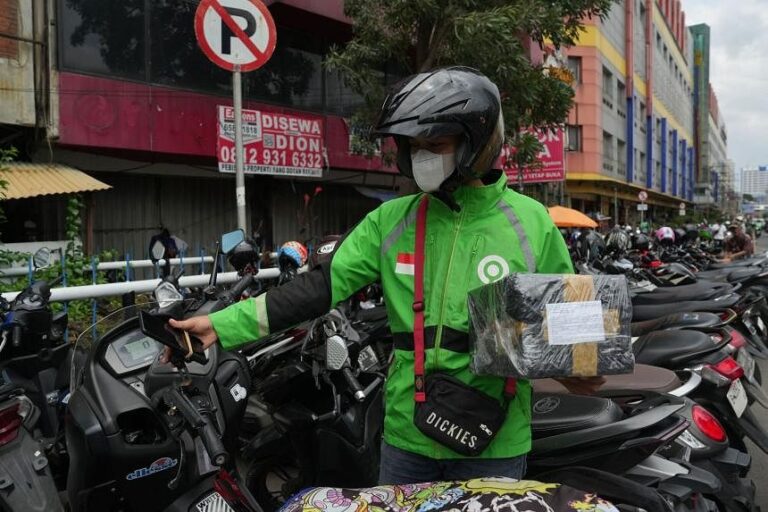JAKARTA – Indonesia’s start-ups are struggling to compete against their cash-rich foreign rivals, with the nation’s two largest unicorns GoTo and Bukalapak seeing their valuations slide substantially in 2024.
Investment in local start-ups has also slowed by about two-thirds, from around US$3.5 billion (S$4.8 billion) annually in 2020 and 2021, according to a November 2023 joint report by venture fund AC Ventures and management consultancy Bain & Company. This places more pressure on local companies to innovate, stop burning cash and become profitable, say analysts.
GoTo, formed by the merger of ride-hailing firm Gojek and e-commerce giant Tokopedia in 2021, has seen its share price fall by 55 per cent year to date. It is currently valued at 60 trillion rupiah (S$4.98 billion) on the Indonesia Stock Exchange.
Meanwhile, e-commerce unicorn Bukalapak is down by 33 per cent, bringing its market capitalisation to 14 trillion rupiah.
Both companies have significantly underperformed on the exchange’s broader composite index, which has declined around 4 per cent in 2024. Tough competition from their larger, regional rivals as well as slower innovation are largely to blame, say experts.
Key competitors such as Sea Limited’s Shopee and Grab have access to a wider pool of funding, regional reach and more aggressive tactics.
Sea is listed on the New York Stock Exchange and has a market capitalisation of US$43.6 billion, while Grab is worth US$14 billion on the Nasdaq.
“Being listed in the US market allows you to raise US$1 billion relatively easier. This is a small figure compared with the total market capitalisation there. While for GoTo, which is listed on the Indonesia Stock Exchange, such size is an upper value,” said senior equity analyst Henry Pranoto.
These rivals can also use cash generated from their other profitable businesses to gain market share in Indonesia. Shopee’s parent Sea has said it is fully committed to using the group’s global gaming subsidiary Garena to fund cash-burning strategies for its main e-commerce market in Indonesia.
Meanwhile, Grab is eating into GoTo’s share in Indonesia’s ride-hailing sector, using backup funds from markets outside Indonesia such as Singapore, which is already operating profitably.
The continuous need to innovate is also key, say analysts. Bukalapak, for example, has raised investors’ eyebrows for sitting on its 20 trillion rupiah cash pile instead of deploying it to draw new e-commerce customers.
“The inability to channel funds into businesses shows it’s lagging in technology and innovations,” said an analyst at Jakarta-based investment bank BNI Sekuritas, who declined to be named as the person was not authorised to speak to the media.
There have also been missteps. In January 2022, Bukalapak spent US$81 million to buy an 11.5 per cent stake in Jakarta-based digital bank Allo Bank, but the initial boost to its profits turned into unrealised losses a year later. An attempt starting in 2020 to get Indonesia’s thousands of mum-and-pop shops to use Bukalapak’s app for their business processes also failed to properly take off.
Being innovative, however, is no guarantee of profitability, as GoTo has discovered. In 2015, it introduced GoSend, pairing its ride-hailing drivers with Tokopedia’s e-commerce customers who wanted their orders shipped instantly.
Jakarta-based hedge fund investor Leontinus Alpha Edison said: “Gojek was the first ride-hailing company in the world that catered to e-commerce customers.”

